ANTI-RACISM & EQUITY RESOURCES
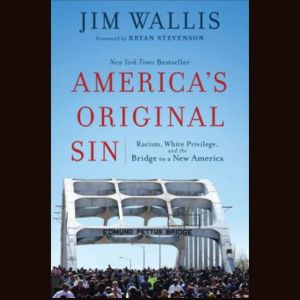
This book is a must-read for all Christians trying to find a thoroughly biblical understanding and grounding in their quest to address “America’s original sin” of racism, written by one of American’s leading Christian writers. Rev. Wallis was educated at Trinity Evangelical Divinity School in Deerfield and became founder and president of Sojourners, a Christian group dedicated to the biblical ideal of social justice.
In this book Rev. Wallis states that it is “time we right this unacceptable wrong” where the “wrong” is racism and the “we” is White Christians. The book carefully and skillfully weaves contemporary events into a biblical account of reconciliation and justice. He traces the history of the White church and its involvement in systemic racism and oppression. The book concludes with strategies that White Christians and White churches can use to “cross the bridge” and address this “original sin.”
While the book was written in 2016, just after the Ferguson, MO riots following the Michael Brown killing and the Baltimore riots following the Freddie Gray killing, the message to White churches is chillingly similar to the situations we encountered last year after the tragic deaths of George Floyd and Breonna Taylor – and many more. It is sad how little we have learned since 2016 as Christians continue confront systemic racism.
The chapters explore topics like “Dying to Whiteness,” which asks us carefully explore our white privilege, and “Segregated Church or a Beloved Community” which develops a new model for churches striving to be anti-racist and non-segregated. Perhaps the most exciting chapter is Rev. Wallis’s call for White churches to repentance. This is almost a stand-alone chapter that looks carefully at the Old and New Testament’s passages on what it means to truly repent. Says Wallis, “Repentance is not just expressing sorrow or admitting guilt; it is about turning completely around and going in a whole new direction.” In the chapter “Welcoming the Stranger,” Wallis calls on us as biblical Christians to step outside our comfort zones and open our churches to diversity and inclusion.
As we at First Presbyterian Church strive to understand our role in the changing and developing world of anti-racism and what the Bible says about our role, Wallis’ book is a challenging book to add to our repertoire.
Reviewed by Brian Smith, Member, First Pres Libertyville - Committee on Anti-Racism and Equity (CARE)
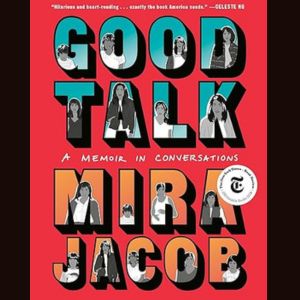
I loved this thoughtful, thought-provoking (and at times hilarious) look at societal issues. This is my first time reading a graphic memoir, and it JUST WORKS! Mira Jacob writes from personal experience. She is U.S. born, but her arranged-marriage parents are immigrants from India and Mira marries a white, Jewish man. Her very curious 6-year-old son, Z, adds an innocent element as he asks difficult questions about race. By juxtaposing her parental conversations with her lived experience, you will experience the tension of living in a country with hope for a better future, and frustration with racial inequities that haven't changed and in some ways have regressed.
Reviewed by Mary Kovatch, Member of First Pres Staff
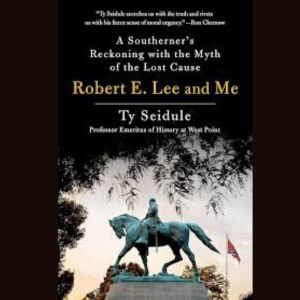
Our national reckoning with racial injustice must first happen in individual hearts and minds and the changes in those deep parts of us can feel glacial. The author of this book has experience with one of those personal transformations—his own.
Seidule was born and raised in the south and attended one of thousands of “seg schools” that cropped up in the wake of the landmark Brown v. Board of Ed that compelled desegregation of public schools. He grew up revering Robert E. Lee and learning the “Lost Cause” mythology that emerged among defeated southerners in the years after the Civil War.
It is often said that the winners write the history books, but Seidule suggests that in the case of the Civil War, the opposite is true—that the forces aligned behind the white supremacists in the south may have seen the war as simply a lost battle in a larger war for hearts and minds.
The true gift of this book is the way Seidule models the process of personal reckoning on race. He does this by asking himself hard questions, and not shying away from the difficult answers. He pulls the loose threads on the mythology he grew up believing and went on to embody, recognizing that there will be a cost to facing the truth. He is willing to pay that cost.
I could not help feeling a simultaneous gratitude for the careful and efficient way Seidule excavates and examines his life from boyhood through school, college and a military career for evidence of how he came to believe the Lost Cause lies, along with a frustration that it would take such a well-educated, thoughtful, Christian person so long to reckon with the facts of history. In fact, Seidule did so only after contributing to the systems upholding of white supremacy and inequality for most of his life. He is a history professor, after all. A southerner. A military man. But Ty is me. And I am Ty.
I, too, have looked the other way, accepting redacted histories for most of my life. I did not know many people of color personally growing up in rural Wisconsin, and was taught by Christian parents that we should be “colorblind” and “take personal responsibility.” But given how broken things in our country seem, I began to question the colorblind approach, seeking out books and articles that introduced me to voices of color, and the parts of history that were glossed over in my formal education. I began to understand the differences between personal racism and systemic racism. I began to understand the reasons why true equity has been elusive in this country. And like Ty, I am changed by what I have learned.
I highly recommend this book to anyone who is interested in the process of personal reckoning, understanding southern cultural mythology, Confederate monuments, and Civil War history.
QUOTES: “Racism is the virus in the American dirt, infecting everything and everyone. To combat racism, we must do more than acknowledge the long history of white supremacy. Policies must change. Yet, and understanding of history remains the foundation. The only way to prevent a racist future is to first understand our racist past.” – p. 256
“Today, we are finally, finally, having a national dialogue and what the confederacy and the lost cause myth meant. It’s gut wrenching. The truth is ruthless. We are finding out that many of the stories and myths that white America grew up with were untrue and racist. We are finally taking into account the millions of African-Americans who lived enslaved, realizing that their lives were every bit as important as the white planter class. Cities and schools across the country are confronting the past.” – p 254
Bonus Takeaways:
Seidule has been involved in committees and decisions related to how military leaders are commemorated, and parts of this book explore different monuments and the stories behind the monument designs. Memorials discussed at some length include the Confederate Memorial, added to Arlington National Cemetery in 1914, the West Point Battle Monument, dedicated to the professional soldiers of the Union in 1898, and the art and sculpture in the “chapel” on campus at Washington & Lee University in Lexington, VA.
Background:
Reviewed by Vanessa Griffin,
Member, First Pres Libertyville - Committee on Anti-Racism and Equity (CARE) & Elder
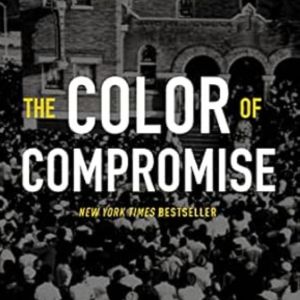
As a life-long Presbyterian I am used to things being orderly and predictable. To say that The Color of Compromise by Jemar Tisby shook up that view is an understatement.
It is significant to note that the copyright on this book is 2019, which means it predates all the turmoil that was the year 2020: the racial disparity of the global pandemic as well as the police-involved killings of George Floyd, Breonna Taylor, and Ahmaud Arbry just to highlight a few events.
2020 was a significant year in race relations, but it is just one year of many. Jemar Tisby seeks to use the history of the American Protestant Church to highlight how race relations have reached the pinnacle of contention that they have. From the very earliest times, European settlers came to this country and attempted to erase people of color not only from their land but from their very identity. Their customs and spiritual lives were dismissed in favor of a life that was deemed better by those same European settlers.
This book brought me to a perspective I had not previously considered. From the very beginning of the American Protestant Church, the Church was actively involved in establishing systems that created systemic racism. The Church failed, over and over, to stand up to acts of racism and in fact advocated for laws that actively discriminated against people of color. And, that failure to stand up is a result of a fear of offending someone, in fact, a fear of things not being orderly and predictable.
That fear is justified. The road to social justice is not a smooth one and real conflict is inevitable. However, as Tisby reminds us, God commands us to move forward without fear “Do not be afraid; do not be discouraged, for the Lord your God will be with you wherever you go” (Joshua 1:9). Tisby calls on us to practice “Courageous Christianity”
Reading this this book has caused me to examine every single experience in my life through a different lens. Upon completion of this book, the question in my mind was “if not me, then who?”
Reviewed by Kristin Marsden, Member, First Pres Libertyville - Committee on Anti-Racism and Equity (CARE)
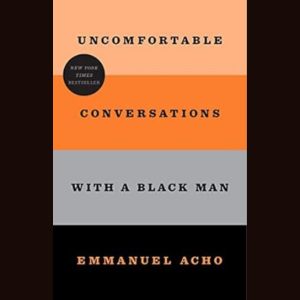
Many people in our country felt that the killing of George Floyd was a turning point that spurred them to new action on issues of racial justice in America. Emmanuel Acho is one of those people, and I thank God for this peacemaking book.
Acho has a knack for breaking down complex and (yes) uncomfortable topics into accessible, real insights that crystallize and illuminate what it’s like to be a black man in this country. Acho is the son of Nigerian immigrants who grew up in America and has been a prep school student, professional football player, a sports analyst and broadcaster, and he holds a master’s degree in sports psychology.
In the wake of the Floyd killing, he began a new chapter of peacemaking work, beginning by producing and distributing a series of videos addressing hard questions related to race. The videos grew into this book, which cuts through the noise, addressing often unspoken questions about labels and names, implicit bias, white privilege, cultural appropriation and so-called “reverse racism,” among many other topics that often feel off-limits in polite conversation.
Acho is a man of faith, who credits Jesus as his model for how to love in a broken world, and a sense of pragmatic hope undergirds his words. His voice embodies a unique and godly combination of directness and grace that make it a shining example of deft intercultural diplomacy.
As I read, I began to think of Acho as the “tough but fair” teacher/coach/boss who knows you might dread to hear the words he’s using to describe today’s assignment/workout/project, but you respect him enough to do the work anyway. And as you do the work, you become wiser, stronger, and more effective because you chose to follow his lead.
The book jacket cover says it best: this book is “an essential guide to the conversations we should all be having to increase our understanding and join the anti-racist fight.” As someone who is interested in rolling up my sleeves and understanding the deeply embedded and abiding sin of racism in our society, I found this book to be a healing balm and I recommend it most highly.
Background:
Illuminating interview with author and psychologist Brené Brown:
Reviewed by Vanessa Griffin, Member, First Pres Libertyville - Committee on Anti-Racism and Equity (CARE) & Elder
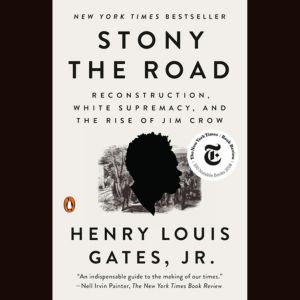
Review by Mike Kollasch, First Pres member since 2003 and CARE Team Member since 2022
Which state was the first to elect a black U.S. Senator, and in which year did they take office?
The answer to this question was a surprise to me and it may be to you as well. In the book Stony The Road, Henry Louis Gates Jr. details the 100 years between the Civil War and the Civil Rights Movement of the 1960s. You may recognize the author from his television show Finding Your Roots. Or perhaps from his PBS documentary Reconstruction: America after the Civil War, that inspired the creation of this book.
The answer to the opening question is that Hiram Revels was the first African American U.S. Senator, and took office in 1870, representing the state of Mississippi. If black people were gaining power politically, even in the south after the Civil War, why was there still the need for marches for civil rights nearly 100 years later? In my mind, our national history had been one of continuous progress towards a more perfect union, and equal rights for all.
The book tells the true history, and it made me rethink my understanding of our story. The title is taken from the lyrics of Lift Every Voice and Sing, by James Weldon Johnson. This is the Black National Anthem. The title is so appropriate, as our history is actually one of steps forward and giant leaps backward. The road towards equality has indeed been stony.
I found this book to be extremely enlightening and I recommend it to you.
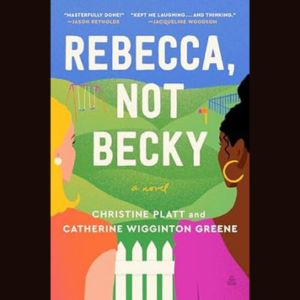
Review by Kristin Marsden, CARE team member since 2020
Perhaps you are interested to learn what it means to be an advocate for anti-racism, but you find the heavy, dense, non-fiction books we often review daunting. For you, I offer Rebecca, Not Becky. Some of the one-star reviews on Goodreads claim it full of cliches and is much too simplistic. However, I suggest to you that it just might be the story that triggers a reader to dig deeper.
The book is co-written by two highly qualified women. Christine Platt is a multi-genre author who holds a BA in Africana Studies, an MA in African and American Studies, and a law degree. Co-author Catherine Wigginton Greene is a writer and filmmaker whose focus is on strengthening human connection and understanding; best known for her feature documentary “I’m Not Racist… Am I?”
The story centers on two stay-at-home moms living in a wealthy white Virginia suburb of Rolling Hills. D’Andrea Whitman is a Black former attorney and mother of a five-year-old child. After her mother-in-law is diagnosed with Alzheimer’s, she and her family leave their familiar, safe world in Atlanta, where they are surrounded by friends who are exactly like them—wealthy and Black. They move to Rolling Hills so that her mother-in-law can live in an upscale memory care facility.
D'Andrea is less than enthusiastic about this move. She dreads leaving her familiar surroundings, and even more so, she dreads being surrounded by only White people. Her biases are clear from the start. On the surface, the community is welcoming to the Whitmans, and D’Andrea is forced to admit she has pre-judged some of its residents.
Rebecca Myland is a White woman, with two elementary age daughters and a successful husband. Rebecca has lived in Rolling Meadow her whole life and is surrounded by friends & family who are exactly like her— wealthy and white.
Rebecca is increasingly aware of her privilege and the narrow, sheltered environment in which she is raising her daughters. In her desire to be more enlightened, she forms a Diversity Committee at their homogenous school, made up of only white people. Aware that her nickname, Becky, has come to represent a stereotype for white privilege, she insists her friends & family call her Rebecca. When the Whitmans move to Rolling Meadows, Rebecca sees a prime opportunity to expose herself and her family to people of color.
When the community confronts the controversy surrounding the removal of a Confederate statue they are forced to decide if the “all are welcome here” signs are genuine or just for show.
Rebecca represents many White people who don’t know what they don’t know. D’Andrea represents many Black people who have had a lifetime of micro-aggressions and would just rather not have to deal with it all.
Sometimes telling a story is the perfect way to make a point. The story of Rebecca, Not Becky might just be the story that prompts an interested reader to start asking their own questions.
RESOURCE PROVIDED BY FIRST PRESBYTERIAN CHURCH OF LIBERTYVILLE COMMITTEE ON ANTI-RACISM & EQUITY MINISTRY – 2024
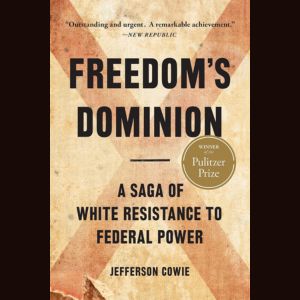
Review by Leslie Koehler, member of First Pres since 1992 and member of CARE since 2022
When you consider the word “freedom,” what comes to mind? The privilege to speak freely, to vote, decide where to live, work and worship, or whom to marry? We enjoy all these freedoms in our (white) American society, to the extent that most of us give freedom little thought on a daily basis. For many Blacks, Native Americans, and those not of European ancestry however, these freedoms are still elusive. There is an even darker side to the entitled freedom as exercised by our early European-American ancestors: the freedom to dominate.
Chances are the history you learned in school is not the whole story. The land we call the United States was not a wide-open vista waiting for settlement; it was home to thousands of tribes of Native Americans from East Coast to West, who were often brutally removed from their lands, many murdered or wounded. By the 1920s, more than 90% of the Native population of the Americas had been killed or died of white men’s diseases. The story of how Indigenous people survived this decimation is one that deserves more attention.
This book is a densely detailed and well-written account of two centuries of history, focusing on Barbour County in Alabama, beginning in 1832. Federal marshals were called upon to prevent white intruders from stealing and settling on Creek Nation land that was protected by federal treaty. The federal government had a duty to protect the targeted people (Native Americans, and later, emancipated slaves) and thus were essential to enforce the law that locals defied.
White citizens held that their freedom (“freedom” being the privilege to oppress with impunity) was violated by this federal intervention. Thus, their freedom to dominate others through illegal seizure of land, slaughtering native peoples, slavery, lynching, voter suppression, and more was threatened. Freedom’s Dominion chronicles the endless struggles over 150+ years between white settlers / citizens, native peoples, former slaves and the US government, up to the time of George C. Wallace and beyond.
The author weaves together a tapestry of little-known stories that were eye-opening for me. The book’s conclusion underscores the reality that in 2024, many of our siblings of color are still not free, and have suffered enormous personal, economic and social loss because of federal and state policies designed to benefit and protect white freedom.
RESOURCE PROVIDED BY FIRST PRESBYTERIAN CHURCH OF LIBERTYVILLE COMMITTEE ON ANTI-RACISM & EQUITY MINISTRY – 2024
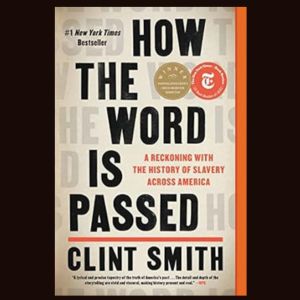
https://www.goodreads.com/en/book/show/55643287
Review by Mike Kollasch, First Pres member since 2003 and CARE Team Member since 2022
“I’ve come to realize that there’s a difference between history and nostalgia, and somewhere between those two is memory.”
David Thorson - Tour Guide at Monticello Plantation
This book is about the story of slavery in the United States. It sheds light on what it really looked like, and how echoes of it persist and haunt us over 150 years after the Civil War. Clint Smith writes poetically, about 7 different places he visited and the people he meets in these places. Perhaps most importantly, he writes about how these people interact with our shared history, and how people are working to bring light to truths that are more comfortably, and persistently, hidden.
This book is also an approachable book, and it comes with many accolades. It made the New York Times list of the 10 Best Books of 2021. I think part of the reason this book feels so approachable is that it is broken up into chapters by location. While there is connection between the chapters, each also stands its own. One could read one section at a time, and take time to truly digest it. For instance, with Juneteenth approaching, the chapter on Galveston Island alone would be a great read to connect with the history of the holiday and the people who continue to tell the story.
At the same time, this is a difficult book to read. It is filled with information about the past, and the present, at a very human level. It’s disturbing. And that’s the point. The title of the book is taken from a quote relating to a project at Monticello to collect stories from descendants of slaves, but it also has a larger meaning. These stories need to be told and we need to wrestle with them.
Perhaps Clint Smith says it best at the end of the book’s epilogue. “At some point it is no longer a question of whether we can learn this history but whether we have the collective will to reckon with it.” This book is all about how people reckon with history and it gives us the power to do the same.
Micah 6:8 - Do justice, love mercy and walk humbly with your God.
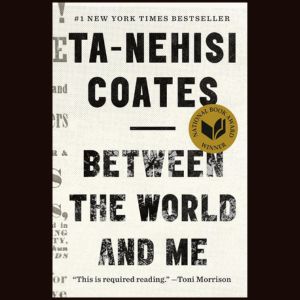
Review by Mike Kollasch, First Pres member since 2003 and CARE Team Member since 2022
The title of this book is taken from a poem by Richard Wright. The poem describes coming upon the scene of a recent lynching. In the details, the author is horrifyingly drawn into the experience of the victim. But this review is not about the poem, but the National Book Award Winning book by
Ta-Nehisi-Coates.
What the poem and book have in common is the writing that draws the reader into the experience of being black in America. In the book, Coates writes to his 15 year old son about his experiences and his understanding of his place in it. He writes about the sadness he feels for his son who will have to contend with the same reality, built on top of black bodies.
Imagine being a 15 year old black boy, finding out that the killers of Michael Brown, in Ferguson, Missouri, would go free. How do you come to terms with the reality that a black life can be snuffed out by police officers without retribution? How does a father respond? Would you tell your son that it will all be OK, even though you've never believed that it would be? How do you deal with the fear that it could happen to your son - with the understanding that you are powerless to stop it?
Coates doesn't answer any of these questions but puts forth many ideas. Among them: "Americans believe in the reality of "race"."; and "Racism...inevitably follows." He also suggests that the problem can only be solved by those who believe that they are white, because their belief is an implied belief in the reality of race and its ability to correctly organize a society.
There is so much more to this book. Toni Morrison calls it "..required reading." I wholeheartedly concur. It is rather short, and it is an easy read, despite being heartbreaking, and intellectually challenging.
Please give it a read, and pass it along to anyone who believes they are white.
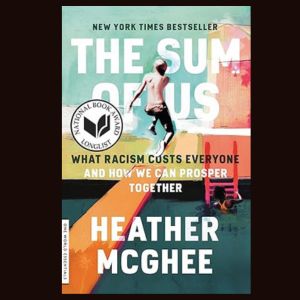
Book Review by Kristin Marsden, CARE Team Member since 2020
- Did you know that between 1930-1950 fewer than 2% of home loans were to people of color?
- Did you know that white high school dropouts have greater household wealth than blacks with college degrees?
- Did you know that the attitude “I don’t see color” or what might be called “color blindness" is in fact at the root of our country’s inability to distribute resources more evenly?
These are just some of the facts that the author of this book uses to make the point that economies built on extreme inequality tend to be more impoverished in the long-term due to the uneven investment in education and infrastructure. Heather McGhee “designs and promotes solutions to inequality in America,” according to her bio. In this book she approaches the subject not from an emotional perspective, but from a financial and practical perspective.
From the inception of our country, people of color were at a disadvantage. They were essential in building our infrastructure but recognized almost zero personal gain from their work. Initially it was only white people of means that benefited. Access to public buildings, home loans, quality education, health care, and voters rights were all limited to white males of means. As time and laws evolved, access was broadened, but still limited. Did you know that the phrase “grandfathered in” originates from a change in voter laws, that meant if your grandfather could vote, now you could too (if you’re male, of course)? Two generations later access to the basic right to have a vote in your own community was still being controlled by white men.
But the disadvantage wasn’t limited to people of color. McGhee uses the example of community swimming pools. In post WWII America, communities were growing and thriving. Many even built community swimming pools. However, as soon as the courts ruled that the pools must be integrated, allowing equal access for all races, many communities chose to close their pools rather than share the water. As a result, no one got to swim!
As the demographics of this country continue to evolve, the inequalities will continue to leave us all at a disadvantage, wasting human potential. It is time, McGhee argues, that we work to equalize access to all public structures. To quote McGhee, “We have not allowed our diversity to be our superpower and we must.” This book is an excellent read for someone who wants to move beyond the emotional to the practical. Equality benefits everyone.
RESOURCE PROVIDED BY FIRST PRESBYTERIAN CHURCH OF LIBERTYVILLE COMMITTEE ON ANTI-RACISM & EQUITY MINISTRY - 2023
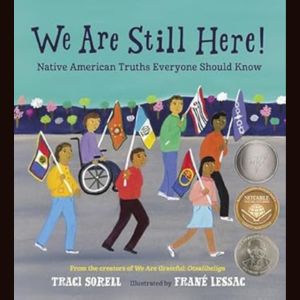
Book Review written by Vanessa Griffin, CARE Team Member since 2020
My children are old enough to choose and read their own books now, but I still love the children’s section at the library. This book presents one excellent reason why—we can all learn from the best children’s books.
The book brings us into a classroom of a school called “Native Nations Community School,” and shows us the topics and summaries of presentations from twelve young
Native students in honor of Indigenous People’s Day. Here’s a fast summary of topics: Assimilation–the US Government tried to weaken and destroy Native culture and language Allotment–the US Government divided tribal land giving tracts to individuals and selling the rest
Indian New Deal–the US Government tried help Native people after the Great Depression with new laws Termination– the US Government decided to stop honoring treaty agreements with 100+ Native Nations Relocation– the US Congress passed a law encouraging Native people to relocate far from their homes Tribal Activism– Native citizens organized for tribal sovereignty, land recovery, health care & education Self-Determination– US Government passed laws to help Native people govern themselves
Indian Child Welfare– Congress passed some laws protecting rights of Native people to parent children Religious Freedom– Native people sought US Supreme Court’s help to protect their beliefs & ceremonies Economic Development– Some Native nations have opened casinos to help support their communities Language Revival– Native nations are seeking to teach Native languages to ensure their culture lives on Sovereign Resurgence – Native people are taking action on behalf of their people, speaking up for land and water rights, looking after citizens’ health, education and safety, and share their stories.
At first glance you might think—is this really a children’s book? These feel like heavy topics for children. The fact is that Native children are living with a legacy that involves generations of their ancestors being brutally removed from their homelands to make way for white people to live there. Native people who want their children to have a connection to their tribal history must find ways to teach them these hard histories. The very least I can do as a white person is listen along and try to understand that history, too. And teach my own children, while I’m at it.
RESOURCE PROVIDED BY FIRST PRESBYTERIAN CHURCH OF LIBERTYVILLE COMMITTEE ON ANTI-RACISM & EQUITY MINISTRY - 2023
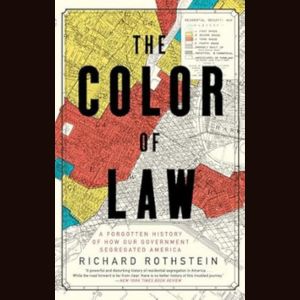
The Color of Law: A Forgotten History of How Our Government Segregated America | Goodreads
Review by Mike Kollasch, First Pres member since 2003 and CARE Team Member since 2022
I think many would agree that racial inequality in our country is at least partially connected to segregation. We often refer to majority black neighborhoods as impoverished, and likely recognize that opportunities for economic prosperity are more limited in these areas. Conversely, it is not controversial to say that suburban areas like Libertyville are less likely to have large black populations. What if it was our government that created the segregation of races?
In this book, Richard Rothstein, a Distinguished Fellow of the Economic Policy Institute lays out with detailed evidence the multiple ways in which our government institutions have created and worked to sustain segregation across the country. And it’s not just the South. His examples include San Francisco, Boston, and even Deerfield, and Arlington Heights, Illinois.
At its heart, this book argues that our government is responsible for the lack of economic opportunity inherent in segregated neighborhoods. And that this means that our government bears some responsibility for fixing it. This can only happen when we as a nation reflect on our history and work together in order to form a more perfect union.
This book is thoroughly researched and reads like a very scholarly tome. The Bibliography is extensive, as are the notes. If this dissuades you in any way from reading the book, I’d like to point out that the “Frequently Asked Questions” Appendix is very readable. It addresses many of the questions that you can imagine to challenge the narrative or intent of the book. These 21 pages are essentially a handbook for having an informed discussion about the issues.
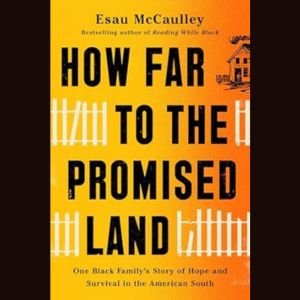
Book Link: http://bit.ly/422x27h
Review by Vanessa Griffin, First Pres member since 2007 and CARE Team Member since 2020
I believe Jesus calls me to love my neighbor as myself. To me, the best place to start when loving my neighbor is understanding who they are and the experiences that have shaped them.
Reading life stories like this one, to me, is an act of love and attention for the experiences of others.
The author is a neighbor in more than one way. He’s a bit younger than me, but a generational peer. Like me, he is a transplant to the Chicago area. He is currently an associate professor of New Testament at Wheaton College and theologian in residence at Progressive Baptist Church, a historically Black congregation in Chicago.
McCaulley tells us that in writing this book, he is teaching his children untold stories about the lives of their dad, their grandparents, and extended family members. And he is teaching them about America in the process. The book shares McCaulley’s insights about what it’s like to:
- ·Grow up in 1970s & 1980s Alabama in a single-parent household;
- ·Go to a high school where half the students who begin as freshmen will not graduate;
- ·Learn about racism as a first grade—he called a wrong number and was called the n-word;
- ·Deliver a eulogy for a father who he did not know well, yet loved and came to understand.
You’ll also learn about McCaulley’s perspectives on:
- ·How “welfare queen” rhetoric impacts the children of a family in need of public assistance;
- How school sports & the simple fact of eligibility requirements are a game-changer for many students who face the barriers of poverty and other daunting circumstance;
- How having faith is having the patience to wait for God’s work to unfold; faith gives the author’s life meaning, and a meaningful context for all of the hard work that he did to fight against the statistics that were stacked against him.
Reading this book helped me have a more nuanced understanding of what it’s like to be a Black man in America. I highly recommend this compassionate, measured, account of how one faithful person makes sense out of their family stories.
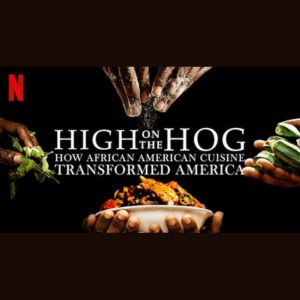
“It was strange to come home to a place I’d never been,” chef and food writer Stephen Satterfield says in the opening moments of “High on the Hog: How African American Cuisine Transformed America.”
Those words serve as the through line for the documentary series as it traces African American cuisine from its roots on the African continent. The four-part series, which debuted in the summer of 2021 on Netflix to great critical acclaim, travels from the West African nation of Benin through New York, Virginia, Pennsylvania, South Carolina and Texas, exploring how African slaves and their descendants helped define American cuisine.
Visiting West Africa for the first time, the sounds, smells, and tastes of an open-air market evoke “fragments of a lost memory” for Satterfield, who serves as host and guide throughout the series. He’s joined in the first episode by food historian and cookbook author Dr. Jessica B. Harris, who wrote the 2011 book on which the series is based.
The series, beautifully filmed and edited, has a compelling narrative and features powerful storytelling that honors the culinary legacy of enslaved Africans, helps to unravel the tangled history of American food culture, and reminds us that history isn’t just written in textbooks, it’s also in the stories and food traditions passed down through generations.
Reviewed by Michelle Groenke,
Director of Communications & Member Ministry, First Pres Libertyville
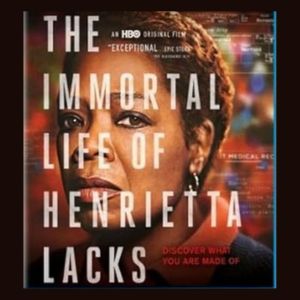
Rose Byrne and Oprah Winfrey star in this movie based on the book of the same name. The title is a reference to the cancer cells taken from Henrietta Lacks, a black woman, in the 1950s without her knowledge or permission, and how those cells, known as HeLa, are still living today and have been (and continue to be) the basis for many major medical breakthroughs and treatments we all benefit from, such as the polio vaccine and advances in invitro fertilization and gene mapping. Although Henrietta has been gone for over 60 years, her cells still live on and benefit the medical industry even now.
Author Rebecca Skloot (Byrne) is a biologist and writer who tracks down the Lacks family, in particular Henrietta’s grown daughter Deborah (Winfrey), to find out the story of Henrietta. We learn about the poverty, lack of health care, and inequities the Lacks children suffered from, although their mother’s cells enriched many. This compelling story, told with humanity and empathy, brings home the fact that many Black people are not treated with the dignity and equity with which they deserve as human beings.
The movie is a great place to start learning about HeLa cells, the biomedical industry and inequities suffered by people of color, but if you have time, read the book as well for a deeper look into Henrietta’s past, the lives of the children she left behind, and for a full picture of how the medical industry has benefited from her immortal cells.
Reviewed by Susan Henning,
Member, First Pres Libertyville - Committee on Anti-Racism and Equity (CARE)
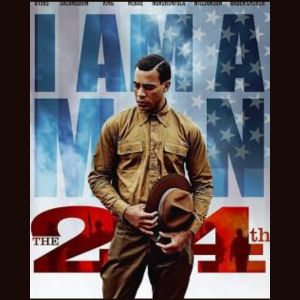
One night my husband and I were looking around the TV networks, trying to find something to watch, and the movie The 24th caught our eye. He is always interested in military history stories, and we both have been searching for media that open our eyes to racial conditions in our country. It checked a lot of boxes for us, and turned out to be a very informative and emotional experience. It is based on a true story, and the events were heartbreaking and relevant to today.
The 24th was an Army Infantry regiment composed of African American soldiers who were stationed in Texas in 1917, shortly after America entered World War I. Their job was to guard the construction of a training camp on the outskirts of Houston. At this point in American history, officially sanctioned racial discrimination throughout the South was enforced through the "Jim Crow laws." The presence of this all Black unit stationed so close to a segregated city made many white citizens resentful, and tensions grew over the summer, as the members of the 24th were subject to harassment, discrimination and provocation by the citizens and local law enforcement. This tension culminated in a riot in the city of Houston, and many people were killed. It led to the largest murder trial in US military history in which 19 soldiers were sentenced to death.
This movie was a painful reminder of a period of history when Black Lives, in the eyes of many white people, did not really matter. Although the bigotry displayed in this movie is much more vicious and prevalent than it is today, it remains a major problem in America. The main character was Sorbonne educated and joined the Army because he was hoping African Americans could win the sympathies of more white people by demonstrating their patriotism. He was being encouraged to go to a training school for black officers which would have opened doors for him and other young Black men. The loss of this individual to racial violence is just one unfortunate example of the loss of someone who may have helped make this country greater. I recommend this movie because it portrays the history of our nation in terms of racial injustice, and helps white people understand the depths of pain and sorrow that are experienced by our Black brothers and sisters.
Reviewed by Debra Alexander,
Co-chair, First Pres Libertyville - Committee on Anti-Racism and Equity (CARE) & Elder

Documentary available on Amazon Prime, https://www.deconstructingkaren.com/
Film Review by Kristin Marsden, CARE Team Member since 2020
“….nice white women attend the wildest dinner party of their lives. The main course is a radically honest conversation on racism.” – AMAZON DESCRIPTION OF DECONSTRUCTING KAREN
Regina Jackson is a Black woman from Chicago. Saira Rao is the daughter of Indian immigrants who grew up in Richmond, VA. Together they founded Race 2 Dinner, an organization built to get white women thinking about their role in systemic racism, and most importantly, get white women thinking about how they can affect real change in our culture.
Many of us would be hesitant to attend a dinner like this one. A group of white women of varying ages & life experience gather for wine, a lovely meal, and a table conversation that would cause even the most secure amongst us to cringe. But being uncomfortable is the point. Some compelling questions & statements at this dinner:
“Raise your hand if you would trade places with a Black person in our society.” “When your skin is seen as a weapon, you are never unarmed.”
“What have all the ‘good’ white people been doing for 450 years?”
“You say you don’t see color, color doesn’t matter. ‘When we cut ourselves, we all bleed red.’ But if you see red in the blood, how can you say you don’t see color?”
Many times during the conversation, women were moved to tears. When this happens, the guest is asked to leave the table to compose herself. Sounds harsh, right? Jackson & Rao point out that when a woman starts to get emotional, the conversation is derailed, becomes about that individual, and moves away from the topic of the larger problem—systemic racism. Race 2 dinner requires this of guests as a demonstration that individual emotional responses have no place at the problem-solving table, and are rightly processed on a person’s own time.
Another topic that is addressed in the film is white women’s desire to be “nice.” We want everyone to get along. In fact, Jackson & Rao believe that Liberal White Women are dangerous, because they believe they can ‘love it all away.’ During the dinner, they push back on platitudes about how love can conquer everything.
The reality is love alone is not enough. Unfair systems need dismantling. Believe what black and brown people tell you about their experiences. Don’t get defensive—listen. Let what you hear sink in. Then listen some more. And commit to speaking up; to having the tough conversations with other White people.
Of course, this is a conversation we should all be having, regardless of gender. But let’s face it, women get things done. We need to get over our fragility, recognize the problems and the power we do hold, and begin to use that power to take action. I highly recommend this uncomfortable, thought-provoking film.
RESOURCE PROVIDED BY FIRST PRESBYTERIAN CHURCH OF LIBERTYVILLE COMMITTEE ON ANTI-RACISM & EQUITY MINISTRY - 2023

Code Switch is a fascinating podcast that talks directly about race in America. It covers a diverse array of topics Including poetry, sports, history, business, romance, friendship, personalities, politics, and much more. It's an NPR production that was awarded Apple's first ever "Show of the Year" award for 2020. The hosts are knowledgeable, funny, and laid back. A recent episode that I really enjoyed was "Do the Golden Arches Bend Towards Justice?" which looked at the history of McDonalds courting of black ownership. Check out this podcast. You'll learn and enjoy at the same time!
Reviewed by Rob Heinrich,
Member of the FPC Anti-Racism & Equity Task Force

After the first time I heard of the podcast Nice White Parents in August of 2020, I heard about it at least four more times within that same week. My friends were texting and emailing about it. It was trending on my Facebook page. It was advertised by another podcast I listen to. “Have you heard about Nice White Parents , Amy?” “Amy, you’ve got to listen to Nice White Parents!” You see, the circles I run in are predominantly filled with predominantly nice white parents, and I suppose I, too, am a “nice white parent.” What does that phrase mean? In this context, a nice white parent is a well-intentioned parent who wants public schools to be an equitable place for all students no matter their race AND who wants the best education possible for her own (white) kids.
What Chana Joffe-Walt reveals throughout the Nice White Parents podcast series is how those two desires have been in conflict with each for decades across American public schools. She does so by reporting on the fraught history of a middle school in Brooklyn, all the while asking questions that extend far beyond Brooklyn (and certainly into Libertyville, IL). This five-part series is for anyone who wonders why American public schools are just as segregated today as they were in the late 1960s. It is for anyone who wonders how race impacted their own schooling or how it impacts their children’s schooling. It is for anyone who wonders why white parents have the most power in most school systems and how that impacts education. And it is for anyone who wonders what systemic change could look like and how it could be possible. I recommend you listen to it, and--more importantly--I recommend you talk about it with those in your circles.
Reviewed by Amy F. Christian,
Member, First Pres Libertyville - Committee on Anti-Racism and Equity (CARE)

While participating in a few seminars dealing with issues of race, one thing really caught my attention. People were asked to introduce themselves and give a short description of their background. After we had done so, the facilitator noted that every member of a racial minority in the room included their racial identity in their introduction, not one white person did.
Why was that? To help dig deeper into this anomaly, I joined a group called Be the Bridge. As a part of the newbie orientation, we completed a number of units of self-study. One of those units included listening to podcast series called “Seeing White”. Each episode of this multi-part podcast helped me understand “why” and provided me with a new perspective on the privileges, often unperceived, of being part of the majority race. I think you will find this podcast series illuminating, moving, inspiring and deeply thought provoking. So, find yourself a quite space, free of distractions, so you can focus on this exceptional series. Hope you find them as profound as I did.
Reviewed by Tucker Olson,
Co-chair, First Pres Libertyville - Committee on Anti-Racism and Equity (CARE)
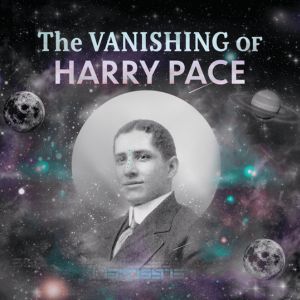
This 6-part series by the Radiolab team explores the fascinating story of pioneering African-American music label founder, Harry Pace. His life story could fill several volumes, as he "launched the career of Ethel Waters, inadvertently invented the term rock n roll, played an important role in W.C. Handy becoming 'Father of the Blues,' inspired Ebony and Jet magazines, and helped desegregate the South Side of Chicago in an epic Supreme Court battle.”
The first two episodes detail his amazing story, diving deep into the history of early American record companies and how musical genres were marketed differently to black and white audiences. Harry Pace's unlikely rise as founder of Black Swan Records will bring to mind the story of Berry Gordy, Jr. and his Motown Records in the 1960s. Pace then became a lawyer, worked with WEB Du Bois, and was involved in several high-level court cases in an attempt to desegregate the South Side of Chicago.
From there, the story becomes more mysterious as we meet Pace’s grandchildren who never knew about his achievements, but even more surprising, that their family was African-American. It seems that later in his life, Harry Pace and his family began to “pass” as white. The producers explore the possible reasons for this change in his self-identity, tying it in to the civil rights movement and the politics of the era.
Three bonus episodes dive deeper into blues singer Ethel Waters, lyric tenor Roland Hayes, and “Lift Every Voice and Sing,” the Black national anthem.
Reviewed by Dan Brame,
Member, First Pres Libertyville - Committee on Anti-Racism and Equity (CARE)

Reviewed Episode: https://sceneonradio.org/s6-e5-a-way-forward/
Season Trailer: https://sceneonradio.org/season-6-trailer-echoes-of-a-coup/
Season Website: https://sceneonradio.org/echoes-of-a-coup/
Review by Vanessa Griffin, First Pres member since 2006 and CARE Team Member since 2020
One of the most transformative podcasts I’ve ever listened to was Season Two of this series, called Scene on Radio: Seeing White, so naturally I was excited to hear that the editors had a new season ready for ears.
Season Six is focused on reporting a little-known story of a massacre and the only successful coup in American history, which happened in November 1898 in Wilmington, North Carolina.
A mob of white supremacists murdered an unknown number of Black residents, burned a Black- owned newspaper office and printing press, and committed other acts of terror against Black residents. The mob of white terrorists also removed elected members of a bi-racial coalition of public officeholders and installed segregationists in their place. The first four episodes of the season tell this story through the perspectives of local people and give just attention to a shameful chapter in North Carolina’s and America’s history.
The final episode is the most powerful, in my opinion, because it focuses what it might mean to heal from a profound wound like a massacre and coup in Wilmington in 1898. The hosts, Michael
A. Betts, II and John Biewen speak with community organizers and residents of modern-day Wilmington about the impact of this history on their community today. As listeners, we get to consider together the benefits, limitations and complexities of community actions like co- created public commemoration events, public monuments and memorials, and proposals for reparations including public apologies. We also get to hear the voices of people doing the complex and careful work of advocating for repair.
“Sometimes wounds don't heal properly. And the physician has to lance the wound. It hurts. It's painful. But it will not heal properly until he has to lance it. The massacre, the violence in 1898 was a bad wound on New Hanover County. It was never addressed.
We're simply trying to get the data, face the facts, and begin to heal and develop a process of reconciliation.” –Bertha Boykin Todd, community organizer
I highly recommend listening to the season if you can; just episode 5 if you’re pressed for time.
RESOURCE PROVIDED BY FIRST PRESBYTERIAN CHURCH OF LIBERTYVILLE COMMITTEE ON ANTI-RACISM & EQUITY MINISTRY – 2024
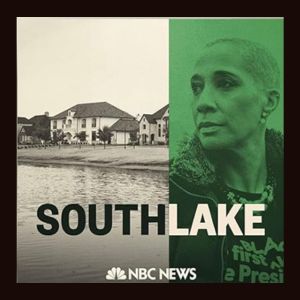
https://www.nbcnews.com/southlake-podcast
Review by Kristin Marsden, First Pres member since 2005 and CARE Team Member since 2020
This NBC investigation is hosted by reporter Mike Hixenbaugh and correspondent Antonia Hylton, and has six parts, each running about 35-40 minutes.
Southlake, TX is an idyllic suburb of Dallas. It is very much growing, filled with affluent households, an outstanding school district and tons of community pride. People are well educated and watch out for each other. The crime rate is low, and the quality of life is high. Anything about this community sound familiar to you? To me, the similarities to Libertyville were striking!
Which is exactly why this podcast was intriguing to me.
When a social media video emerged showing a group of Southlake high school students chanting the “N” word, the community was alarmed. Stories of micro-aggressions began to emerge. Even the black family of very popular former Dallas Cowboys star was victimized by hate and racial harassment.
Parents & the school board wanted to find a way to confront the racism that led to this video by providing diversity inclusion education. The community seemed poised to bring about change.
Educators & administrators worked very hard to create a program that would educate students about cultural diversity, with the intention that education and understanding would lead to a more harmonious community.
This podcast was an eye-opener for me about the ways racism works in the world, and I highly recommend it.
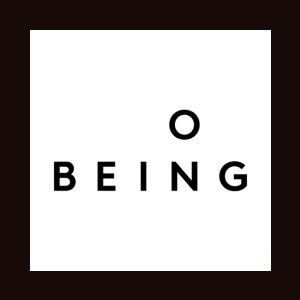
Isabel Wilkerson has a particular gift for illuminating and articulating the legacies and impacts of our hard histories. She is a Pulitzer-Prize-winning narrative journalist whose well-crafted non-fiction has rocketed to the top of bestseller lists and certainly my own list of “must reads.” Her book “The Warmth of Other Suns: The Epic Story of America’s Great Migration” tells the story of the decades-long migration of black citizens who fled the South for norther and western cities, in search of a better life.
Her most recent book, “Caste: The Origins of our Discontents,” is aptly described as “an expansive, lyrical and stirring account of the unspoken system of divisions that govern our world.” It is an important book— one that many have called extraordinary. It was an earthquake of a book for my own growth as someone working to uproot racism.
Listening to this interview between Tippett and Wilkerson is like getting a tour through just a few of the most powerful framing metaphors explored in “Caste”. These metaphors are a powerful way of thinking about the challenges we face and how we might authentically heal our personal and national wounds.
Wilkerson tells us that her father was a Tuskegee Airman and could not work as a pilot after WWII because of his race, so he went back to school to become an engineer and eventually a builder of bridges. Wilkerson has built some beautiful bridges with her books. She is a calm, steady and masterful voice of interpretation for this fraught time in history, and I hope we will all listen to her voice.
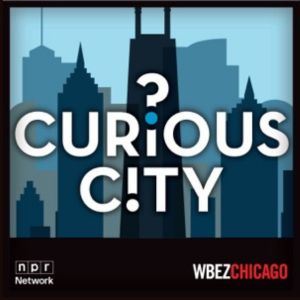
Reviewed Episode: https://open.spotify.com/episode/4LbBY3nXwvFhAMOTcL136m
Review by Dan Brame, First Pres member since YEAR and CARE Team Member since 2020
Reporters dig deep to answer a listener’s question about the city, the region, or its people in each episode of this weekly radio show/podcast by Chicago’s NPR station, WBEZ. They've tackled everything from what it’s like to be a CTA train operator to the history of the Medinah Temple.
Many of their stories center people of color, like recent shows about the first Black-owned airport in America and how Mexican bakeries stay competitive.
This episode begins by explaining why a 13-acre park in the West Ridge neighborhood of Chicago is called “Indian Boundary.” The 1816 Treaty of St. Louis forced the Anishinaabe people (the Potawatomi, Ojibwe, and Odawa) north of the area that would become Chicago, and this line eventually became a street called Indian Boundary Road, now known as North Rogers Avenue. In the 1830s, the area became an important trading post for settlers and Indigenous people, but subsequent treaties forced them west of the Mississippi. As the forced removal of Native American people continued in the late 1800s and early 1900s, cities like Chicago began to appropriate Indigenous imagery and names into their infrastructures. In 1916, Indian Boundary Park was dedicated on the former treaty line, complete with carvings of Native Americans wearing stereotypical headdresses that weren’t representative of the Anishinaabe.
The story continues beyond the naming of the park to explain the “Land Back” movement, which is “a multifaceted movement that is attempting to reestablish ownership and governance of former tribal lands.” One example with local ties is the effort to regain control of land in DeKalb County that was granted to Chief Shab-eh-nay of the Prairie Band Potawatomi Nation in 1829.
When he traveled to Kansas in 1849 to check on members of the band who had been removed, the State of Illinois sold his land out from under him, saying that he had abandoned it. The fight to regain the land continues today, with a bill introduced in Congress last year to return it to the Prairie Band and compensate them for the illegal sale.
“How Did Indian Boundary Park Get Its Name?” is just one of many thought-provoking and enjoyable episodes in the series. If you like to explore the rich history and culture of the Chicago area in stories both big and small, be sure to add Curious City to your podcast feed.
RESOURCES
Adult Resources:
Be the Bridge: A nonprofit organization equipping people to serve as ambassadors of racial reconciliation
Family Resources:
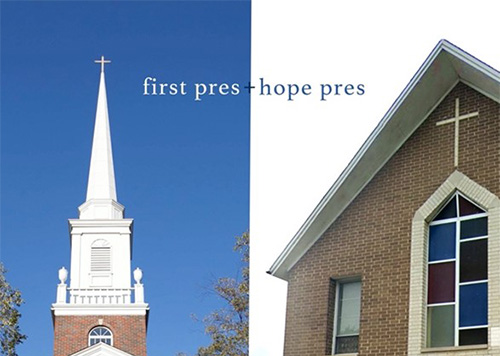
When Rev. Dr. Brian R. Paulson moved to Illinois in 2004, he was warmly welcomed into the Chicago Presbytery by Rev. Dr. Leslie Sanders of Hope Presbyterian Church in Chicago. Since then, the two pastors have cultivated a supportive and caring collegial relationship. Over the years, they have exchanged pulpits and words of encouragement, while their congregations have worshiped together, youth have traveled and served together, and both churches have partnered on cooperative acts of service and mutual support.
- Learn more about Hope Presbyterian Church.
- Learn about HopeTechnology and Education Center.
Videos by the pastoral staff of the First Presbyterian Church of Libertyville on the biblical basis to affirm Black Lives Matter.
Dr. Paulson examines the Parable of the Good Samaritan - Luke 10:25-37. Rev. Paulson articulates the way the Rev. Dr. Martin Luther King reflected on this passage over the course of many years. The passage today is a call for the action and urgency of a compassion that crosses all barriers - especially the barriers and burdens of race impacting the Black community in America. Watch the video
Rev. Amy Heinrich examines select verses from Isaiah 58. Watch the video
"But the end is reconciliation; the end is redemption; the end is the creation of the beloved community. It is this type of spirit and this type of love that can transform opposers into friends. The type of love that I stress here is not eros, a sort of esthetic or romantic love; not philia, a sort of reciprocal love between personal friends; but it is agape which is understanding goodwill for all men. It is an overflowing love which seeks nothing in return. It is the love of God working in the lives of men. This is the love that may well be the salvation of our civilization."
MARTIN LUTHER KING JR. "The Role of the Church in Facing the Nation's Chief Moral Dilemma," 1957
